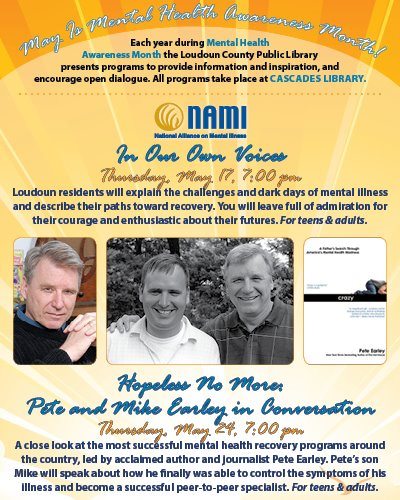
I am excited this week because my son, known to most of you as Mike, and I will speak for the first time together about his mental illness, our family’s struggle, and his recovery.
We will be appearing this Thursday, May 24th, at the Loudon County Public Library’s Cascades branch at 7 p.m.
I will offer my perspective as a father, discuss how his breakdown impacted my relationship with him, and how his illness led to me writing my book, CRAZY: A Father’s Search Through America’s Mental Health Madness. I’ve also been asked to describe successful recovery programs that I have seen as a journalist who has visited and spoken in every state except Hawaii, Mississippi and Arkansas, and has visited mental health services in Brazil, Portugal and Iceland.
Mike will speak about what it is like to have the symptoms of a mental illness, the many challenges that he faced and how he eventually came to grips with his disorder. He will talk about what did and didn’t help him — including things that I did that backfired!






